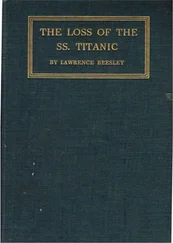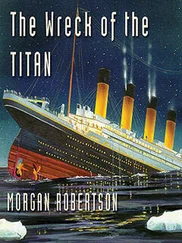Theodore Dreiser - The Titan
Здесь есть возможность читать онлайн «Theodore Dreiser - The Titan» весь текст электронной книги совершенно бесплатно (целиком полную версию без сокращений). В некоторых случаях можно слушать аудио, скачать через торрент в формате fb2 и присутствует краткое содержание. Жанр: Классическая проза, на английском языке. Описание произведения, (предисловие) а так же отзывы посетителей доступны на портале библиотеки ЛибКат.
- Название:The Titan
- Автор:
- Жанр:
- Год:неизвестен
- ISBN:нет данных
- Рейтинг книги:5 / 5. Голосов: 1
-
Избранное:Добавить в избранное
- Отзывы:
-
Ваша оценка:
- 100
- 1
- 2
- 3
- 4
- 5
The Titan: краткое содержание, описание и аннотация
Предлагаем к чтению аннотацию, описание, краткое содержание или предисловие (зависит от того, что написал сам автор книги «The Titan»). Если вы не нашли необходимую информацию о книге — напишите в комментариях, мы постараемся отыскать её.
The Titan — читать онлайн бесплатно полную книгу (весь текст) целиком
Ниже представлен текст книги, разбитый по страницам. Система сохранения места последней прочитанной страницы, позволяет с удобством читать онлайн бесплатно книгу «The Titan», без необходимости каждый раз заново искать на чём Вы остановились. Поставьте закладку, и сможете в любой момент перейти на страницу, на которой закончили чтение.
Интервал:
Закладка:
A quick flashing out of some green and yellow bills from a vest pocket, a light thumbing and counting on the part of Senator Wade. A flare of comprehension, approval, gratitude, admiration, as though to signify, “This is something like.” “Thanks, John. I had pretty near forgot all about it. Nice people, eh? If you see Ed again give him my regards. When that Bellville contest comes up let me know.”
Mr. Wade, being a good speaker, was frequently in request to stir up the populace to a sense of pro or con in connection with some legislative crisis impending, and it was to some such future opportunity that he now pleasantly referred. O life, O politics, O necessity, O hunger, O burning human appetite and desire on every hand!
Mr. Southack was an unobtrusive, pleasant, quiet man of the type that would usually be patronized as rural and pettifogging by men high in commercial affairs. He was none the less well fitted to his task, a capable and diligent beneficiary and agent. He was well dressed, middle-aged,—only forty-five—cool, courageous, genial, with eyes that were material, but not cold or hard, and a light, springy, energetic step and manner. A holder of some C. W. & I. R. R. shares, a director of one of his local county banks, a silent partner in the Effingham Herald, he was a personage in his district, one much revered by local swains. Yet a more game and rascally type was not to be found in all rural legislation.
It was old General Van Sickle who sought out Southack, having remembered him from his earlier legislative days. It was Avery who conducted the negotiations. Primarily, in all state scheming at Springfield, Senator Southack was supposed to represent the C. W. I., one of the great trunk-lines traversing the state, and incidentally connecting Chicago with the South, West, and East. This road, having a large local mileage and being anxious to extend its franchises in Chicago and elsewhere, was deep in state politics. By a curious coincidence it was mainly financed by Haeckelheimer, Gotloeb & Co., of New York, though Cowperwood’s connection with that concern was not as yet known. Going to Southack, who was the Republican whip in the senate, Avery proposed that he, in conjunction with Judge Dickensheets and one Gilson Bickel, counsel for the C. W. I., should now undertake to secure sufficient support in the state senate and house for a scheme introducing the New York idea of a public-service commission into the governing machinery of the state of Illinois. This measure, be it noted, was to be supplemented by one very interesting and important little proviso to the effect that all franchise-holding corporations should hereby, for a period of fifty years from the date of the enactment of the bill into law, be assured of all their rights, privileges, and immunities—including franchises, of course. This was justified on the ground that any such radical change as that involved in the introduction of a public-service commission might disturb the peace and well-being of corporations with franchises which still had years to run.
Senator Southack saw nothing very wrong with this idea, though he naturally perceived what it was all about and whom it was truly designed to protect.
“Yes,” he said, succinctly, “I see the lay of that land, but what do I get out of it?”
“Fifty thousand dollars for yourself if it’s successful, ten thousand if it isn’t—provided you make an honest effort; two thousand dollars apiece for any of the boys who see fit to help you if we win. Is that perfectly satisfactory?”
“Perfectly,” replied Senator Southack.
Chapter LV.
Cowperwood and the Governor
A Public-service-commission law might, ipso facto, have been quietly passed at this session, if the arbitrary franchise-extending proviso had not been introduced, and this on the thin excuse that so novel a change in the working scheme of the state government might bring about hardship to some. This redounded too obviously to the benefit of one particular corporation. The newspaper men—as thick as flies about the halls of the state capitol at Springfield, and essentially watchful and loyal to their papers—were quick to sense the true state of affairs. Never were there such hawks as newspapermen. These wretches (employed by sniveling, mud-snouting newspapers of the opposition) were not only in the councils of politicians, in the pay of rival corporations, in the confidence of the governor, in the secrets of the senators and local representatives, but were here and there in one another’s confidence. A piece of news—a rumor, a dream, a fancy—whispered by Senator Smith to Senator Jones, or by Representative Smith to Representative Jones, and confided by him in turn to Charlie White, of the Globe , or Eddie Burns, of the Democrat , would in turn be communicated to Robert Hazlitt, of the Press , or Harry Emonds, of the Transcript .
All at once a disturbing announcement in one or other of the papers, no one knowing whence it came. Neither Senator Smith nor Senator Jones had told any one. No word of the confidence imposed in Charlie White or Eddie Burns had ever been breathed. But there you were—the thing was in the papers, the storm of inquiry, opinion, opposition was on. No one knew, no one was to blame, but it was on, and the battle had henceforth to be fought in the open.
Consider also the governor who presided at this time in the executive chamber at Springfield. He was a strange, tall, dark, osseous man who, owing to the brooding, melancholy character of his own disposition, had a checkered and a somewhat sad career behind him. Born in Sweden, he had been brought to America as a child, and allowed or compelled to fight his own way upward under all the grinding aspects of poverty. Owing to an energetic and indomitable temperament, he had through years of law practice and public labors of various kinds built up for himself a following among Chicago Swedes which amounted to adoration. He had been city tax-collector, city surveyor, district attorney, and for six or eight years a state circuit judge. In all these capacities he had manifested a tendency to do the right as he saw it and play fair—qualities which endeared him to the idealistic. Honest, and with a hopeless brooding sympathy for the miseries of the poor, he had as circuit judge, and also as district attorney, rendered various decisions which had made him very unpopular with the rich and powerful—decisions in damage cases, fraud cases, railroad claim cases, where the city or the state was seeking to oust various powerful railway corporations from possession of property—yards, water-frontages, and the like, to which they had no just claim. At the same time the populace, reading the news items of his doings and hearing him speak on various and sundry occasions, conceived a great fancy for him. He was primarily soft-hearted, sweet-minded, fiery, a brilliant orator, a dynamic presence. In addition he was woman-hungry—a phase which homely, sex-starved intellectuals the world over will understand, to the shame of a lying age, that because of quixotic dogma belies its greatest desire, its greatest sorrow, its greatest joy. All these factors turned an ultra-conservative element in the community against him, and he was considered dangerous. At the same time he had by careful economy and investment built up a fair sized fortune. Recently, however, owing to the craze for sky-scrapers, he had placed much of his holdings in a somewhat poorly constructed and therefore unprofitable office building. Because of this error financial wreck was threatening him. Even now he was knocking at the doors of large bonding companies for assistance.
This man, in company with the antagonistic financial element and the newspapers, constituted, as regards Cowperwood’s public-service-commission scheme, a triumvirate of difficulties not easy to overcome. The newspapers, in due time, catching wind of the true purport of the plan, ran screaming to their readers with the horrible intelligence. In the offices of Schryhart, Arneel, Hand, and Merrill, as well as in other centers of finance, there was considerable puzzling over the situation, and then a shrewd, intelligent deduction was made.
Читать дальшеИнтервал:
Закладка:
Похожие книги на «The Titan»
Представляем Вашему вниманию похожие книги на «The Titan» списком для выбора. Мы отобрали схожую по названию и смыслу литературу в надежде предоставить читателям больше вариантов отыскать новые, интересные, ещё непрочитанные произведения.
Обсуждение, отзывы о книге «The Titan» и просто собственные мнения читателей. Оставьте ваши комментарии, напишите, что Вы думаете о произведении, его смысле или главных героях. Укажите что конкретно понравилось, а что нет, и почему Вы так считаете.










